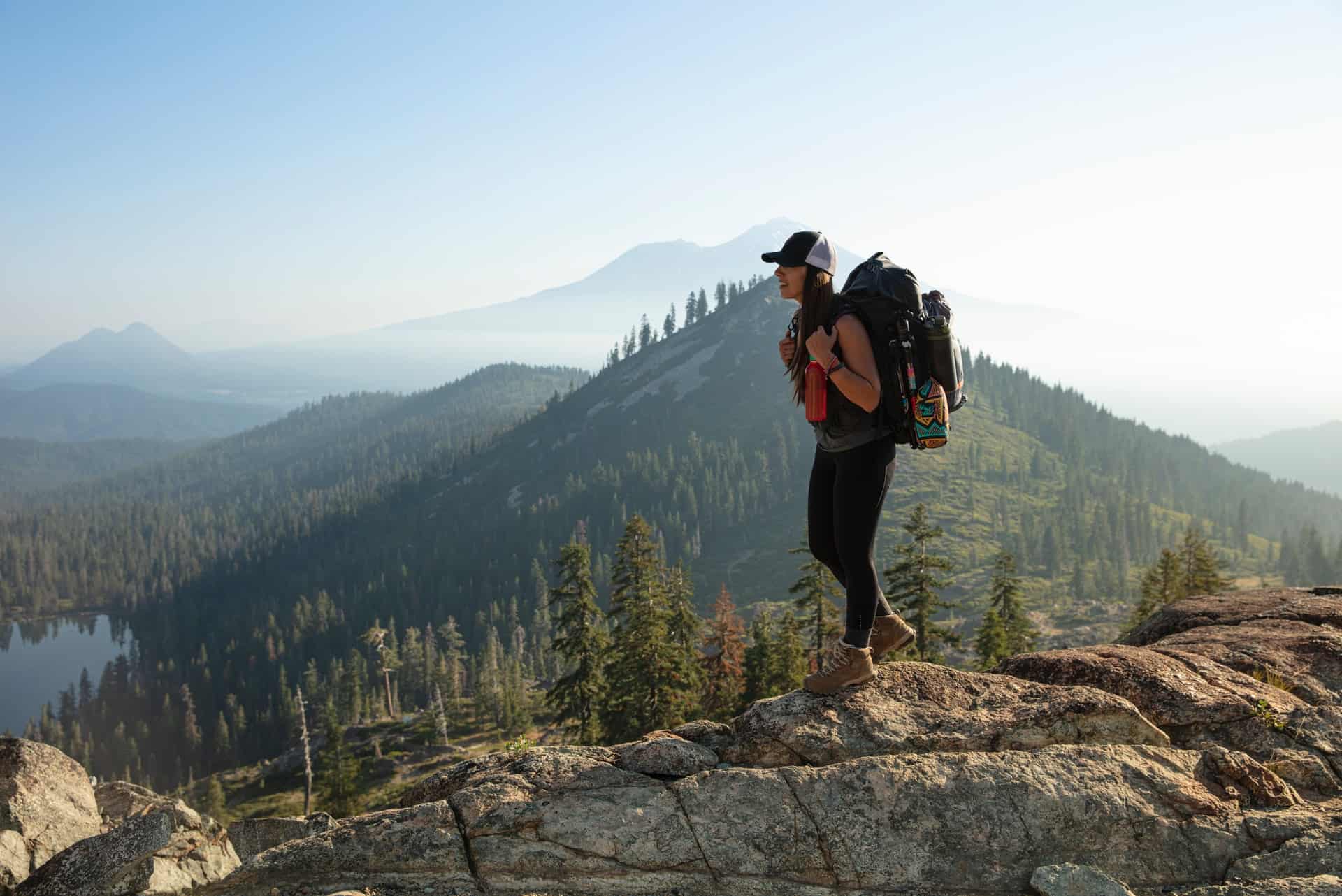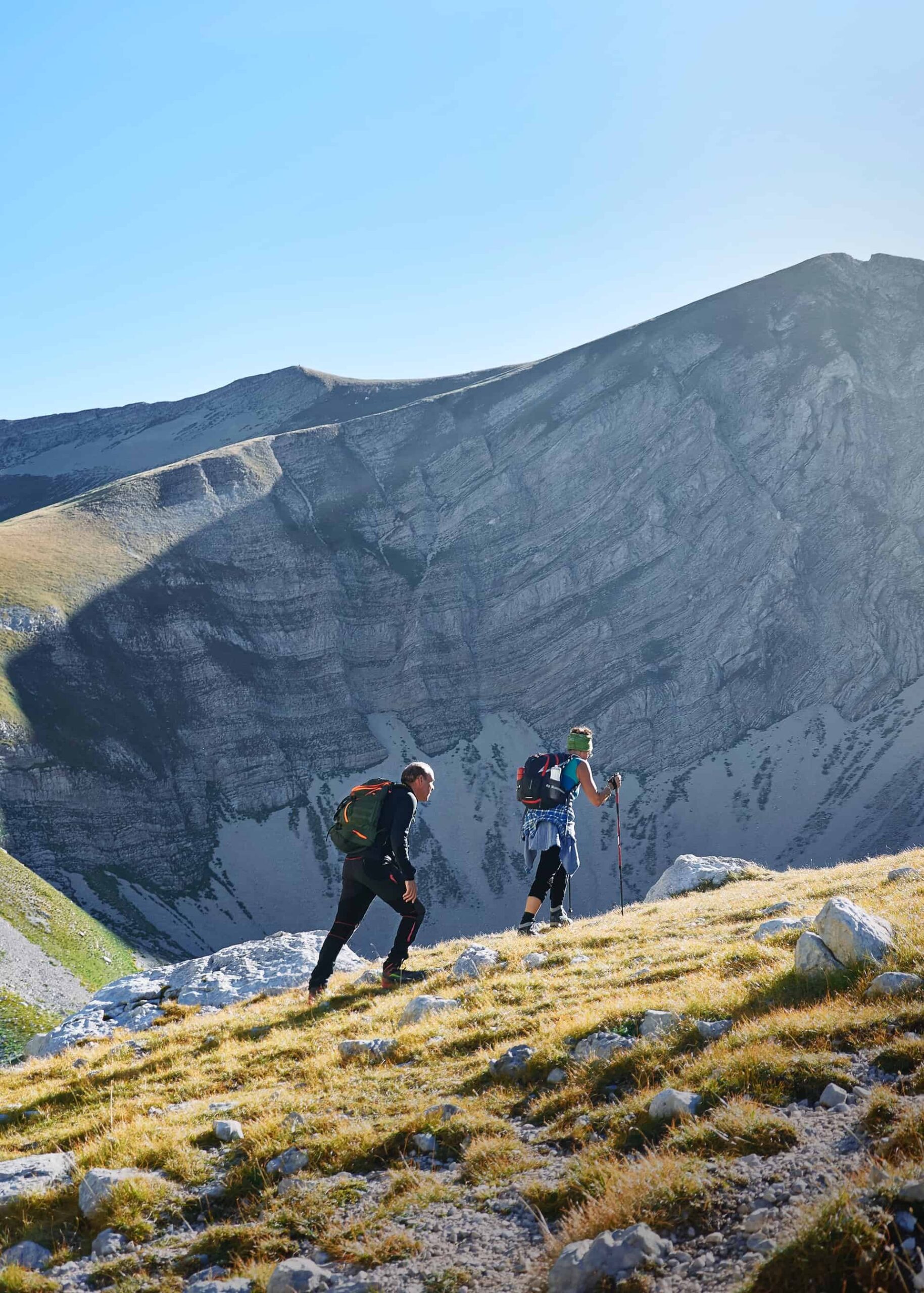Hiking is a pastime enjoyed by millions of people around the world. There’s so much beauty to be seen and experienced but our busy lives rarely allow us to enjoy the nature that surrounds us. Hiking is a great way to get outside, get some exercise, and enjoy the scenery.
Most people would say that they lead busy lives. Maybe you want to get out and go hiking but you’re unsure if you have the time. You may be surprised to learn that, for the average person, it only takes between 2 and 3 hours to complete a 5 mile hike.
Of course, several factors go into determining how long your journey will take, so keep reading to make sure you prepared for all of them!
Health
The first thing you should consider before deciding how much time to set aside for your hike is your current health and fitness level. It’s important to understand your limitations and to set realistic expectations for yourself. One of the best parts about hiking is it’s not competitive. Go at your own pace and enjoy the journey.
Some aspects of your health that will affect your hiking speed are:
Age
Hiking is an activity enjoyed by almost all age groups. Very young children shouldn’t be brought on long hikes unless they’re properly prepared and have the ability to contact paramedics in an emergency.
You would want to make sure you can carry them when they get tired and that you’ve brought enough food and water to keep their blood sugar levels up and their bodies properly hydrated.
Weight
Your weight is going to be another factor that determines how quickly you can complete a 5 mile hike. People with a leaner build will be able to cover more ground quicker than someone who’s overweight
But remember, hiking is an excellent way to get in shape so don’t give up if you’re moving slower than others. Keep going and you’ll be amazed at the progress you make.
Endurance level
Even if you’re a physically fit person it may be surprisingly time-consuming for you to finish your first 5 mile hike. Your endurance level determines how well your muscles, heart, and lungs work together when you’re participating in physical activity over a period of time.
If you eat healthily and exercise regularly then you will have a higher endurance level than someone who doesn’t eat as well or work out as often.
If your endurance level is high then you’ll be able to hike faster because you won’t need to stop for breaks as frequently as those with a low endurance level.
Your endurance level isn’t set in stone however and your ability to withstand physical activity for long periods of time will improve the more you do it.
Previous injuries
It’s very important to keep in mind any previous injuries you have had that may affect your ability to hike for long periods. Injuries like broken ankles or knees can impact how efficiently you’re able to keep up a steady pace while hiking.
Always talk to your doctor before embarking on a 5 mile hike if you’ve suffered from injuries in the past to ensure you don’t cause yourself further damage.
Chronic illnesses
People who decide to go hiking with a chronic illness need to make sure that they’re prepared to manage that illness.
Those who deal with asthma, arthritis, and other illnesses that affect your breathing or cause difficulties with physical activity need to be conscious of their needs and limitations. Bring along your mediation or inhaler even if you don’t think you’ll need it. It’s always better to be safe than sorry.

Most people can manage a 5 mile hike but your physical condition should be a consideration. Don’t worry about pushing yourself too hard and make sure to bring enough supplies to meet your needs.
your Hike Location
One of the biggest factors that will determine how long it takes you to complete a 5 mile hike is your location. There are trails for hikers all over the world and each will have different factors that affect your hiking speed. Some of those factors include weather, elevation, and trail difficulty.
Weather
You’re going to want to know what kind of weather you’re getting yourself into before you begin a 5 mile hike. Check your local news stations or online resources to determine the temperature, wind speed, and possible storms in your area.
This will help you to bring the proper equipment to keep you warm or cool. Maintaining an ideal body temperature will help you complete your hike efficiently and prevent you from having to stop for breaks as often.
If it’s going to be particularly windy then that is going to add time to your hike. Fighting against the wind during a 5 mile hike takes additional time and energy.
You’ll want to be prepared with extra high-calorie food and additional water. Wind tends to strip the water from our bodies so it’s important to remember to bring extra water in this situation.
Certain areas are more prone to storms than others. My area tends to have intense rainstorms during the summer so I always do my research before going on a hike to be properly prepared. You never want to be caught out in the wilderness during a big storm unprepared!
Elevation
When you’re deciding on where to go for a 5 mile hike you should definitely consider the elevation. Higher elevations have lower oxygen levels and can make it harder for you to breathe. High altitude is considered 4,900 to 11,500 feet above sea level.
If you plan to hike in a high-altitude environment you want to be sure that your body can handle the change in atmospheric pressure and decreased oxygen levels. Something you’ll want to watch out for when hiking at high elevations is altitude sickness.
This is an illness that can occur when you travel to a higher elevation without giving your body enough time to acclimate to the pressure changes. Altitude sickness can strike anytime you travel above 8,000 feet.
Symptoms that can indicate the onset of altitude sickness are fatigue, nausea, shortness of breath, dizziness, and vomiting.
If you experience any of these symptoms during a hike it’s essential that you seek medical attention immediately. Altitude sickness can be deadly if left untreated.
Trail Difficulty
There are several resources that can help you identify a good trail for your 5 mile hike. A quick search online will give you a list of hiking trails in your area and most websites will rank them by their difficulty.

Trails that are flat and easy to navigate are perfect for beginners. Intermediate trails may have some obstacles to overcome.
There may be small streams or rivers to cross, and there may be hills or small mountains that you’ll be hiking. Expert trails hikers are going to be the most difficult.
You’ll want to be confident in your navigational skills and have experience climbing in different elevations to safely hike these trails.
It’s always good practice to tell a friend where you’ll be going and when they should expect you back so they can alert the proper authorities should you run into any trouble.
Benefits of Hiking
There are so many positive effects that hiking can have on you physically and mentally. Sometimes just getting outside and being surrounded by nature can be enough to give us a mental shift and feel more at peace.
It’s considered a holistic form of exercise because while you’re out hiking you’re improving your body and your mind.
Hiking Mental Health Benefits
Being outdoors can greatly improve your mental health. It has been proven to reduce symptoms of stress, anxiety, and depression. It will even improve your sensory perception by connecting you to new smells, sights, and sounds.
This can be an amazing treatment for someone suffering from a dissociative disorder. In general, it will help ease your mind and leave you with a feeling of calmness.
Hiking Physical Health Benefits
The physical benefits of hiking are numerous. Hiking uses several different muscles in conjunction with working out your heart and lungs. Going on a hike regularly will lower your risk of heart disease, regulate your blood sugar and pressure, increase bone density, and help you build strength throughout your body.
These benefits can be life-changing for anyone who’s suffering from health ailments. Someone who is struggling with maintaining a healthy weight can rely on hiking almost exclusively for their exercise. This is because you burn a lot of calories while hiking.
The average 200lb person carrying 25lbs of gear with them can expect to burn around 1,000 calories during a 5 mile hike. Several online calculators can help you determine exactly how many calories you’ll burn during your hike.
Always Be Prepared
The key to getting the most out of your 5-mile hike is to be prepared for everything. There are some basics that you’ll want to bring with you on every hike but there may be extra equipment needed depending on some of the factors mentioned above.
Food and Water to Bring in a Hike
Generally, when embarking on a 5 mile hike, you’ll want to bring enough water and food for your journey. Adults should be drinking around 2 cups of water for every mile they hike.
For a 5 mile hike, you’ll want to bring along at least 10 cups worth of water. Many people prefer to use a CamelBak or something similar to carry their water with them.
These types of hydration packs are well-liked because their weight tends to be centered high up which puts less strain on your back. They also allow you to hydrate while you’re hiking which allows you to cover more ground in less time because you won’t have to stop every time you need a sip of water.
The average person needs roughly 1.5lbs of food for a 5 mile hike. You’ll want to focus on foods that are high in protein and carbs to ensure you’re getting the energy and nutrition you need. There are a few things you’ll want to keep in mind when deciding on what food to bring with you.
- Nutritional benefits
- Weight
- Ease of preparation
Finding something that is nutritious, easy to make, and doesn’t add a lot of weight to your pack is relatively simple. You could look in camping stores or aisles or prepackaged and ready to eat meals.
These meals can contain a high sodium content though so you want to make sure to do your research to find the healthiest options.
It’s a good idea to bring along some fresh fruit or vegetables to snack on as well. This will give you something refreshing and nutritious when you start to feel hungry but aren’t ready for a full meal.
A simple zip-lock bag of carrot sticks and a couple of apples certainly won’t add too much extra weight to your pack so they’re worth bringing along.
First Aid Kit
It’s always recommended to bring along a first aid kit. Even if you’ve hiked this trail a million times before and are confident in your ability to navigate it safely you should always bring along some supplies just in case of an emergency.
There are many first aid kits made specifically for hiking and backpacking. They’re typically small, compact, light-weight, and a perfect addition to your pack. If you’re someone who suffers from a chronic illness then you may want to add your medication, inhaler, etc to your first aid kit.
Enjoy Your Journey

Going on a 5 mile hike will improve your physical health, enhance your mental health, and increase your confidence in your hiking abilities. There’s a lot to consider before embarking on your journey and hopefully, these answered some common questions.
A 5 mile hike should only take a few hours at most and you’ll find yourself finishing this hike in an hour after some time. Then you’ll be ready to take on your next challenge- maybe a 10 mile hike!
For more related guides read my other posts:
About the Author

Hussain is a passionate hiker and traveler that love the outdoor and enjoys what nature has to give, whenever he can he love to write and give tips & honest reviews to help others get out there and just seek more unforgettable experiences
